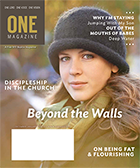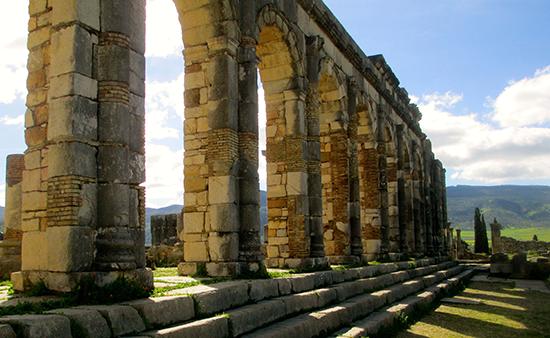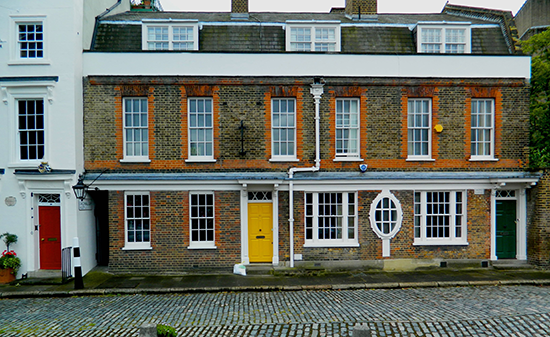
December 2016 -January 2017
Beyond the Walls
------------------
|






Team With Fatima
By Jenny S*
The clatter and clinks of coffee mugs, teacups,
and spoons stirring in sugar resounded in the cramped space.
I had just sat down in the café at a busy time. Who would have thought a Sunday afternoon would be so busy in a coffee shop? Usually, when I showed up during the week it was empty, especially in the back, but now every table was filled with Spanish people chattering loudly about last week’s events. I had to grab one of the smallest tables and sit on a stool.
This is one of my favorite cafés. Everyone in town seems to know about it. It’s painted in lively colors, has old furniture, stacks of even older books and magazines, and strange paintings that change every week.
I fiddled with my notebook, nearly dropping my pencil as I waited for my friend. I shouldn’t say friend, because we had never met before except briefly on Facebook. I prayed I wouldn’t make an idiot of myself, and that God would give me just the words to say. I doubted I would be able to do much that day other than learn a little Arabic, but if God would just lay the foundation for His work in her heart—before she even came—that’s what I needed. A miracle.
Usually, I wouldn’t have picked a Sunday to meet, especially not a Sunday when I was going to a Bible study, but this was the only time either one of us had. This worked out, so I could study a little Arabic, and then, when we finished, I could go right upstairs to the apartment where the Bible study was held, rather than making two trips into town that day via bus and walking.
Just as I suspected, my Moroccan friend arrived 15 minutes late, but I spent the time preparing for our language exchange and studying up on the few Arabic words I did know. I was surprised to see such a young woman come toward me. She looked to be a late teen rather than a college student. Fatima* also didn’t wear a head covering like most Moroccans I knew. She was the first Moroccan university student I had ever met. My experience only included Moroccans who lived in the country or the impoverished immigrants to whom I gave food and clothing at local centers. This girl, on the other hand, wore trendy Western European clothes and walked with confidence.

We sat down and immediately began asking about each other. I learned Fatima was studying computer science and was almost done with her studies. Next semester she would study in Germany where her brother lived. She knew several languages and spoke English nearly perfectly. In that moment, I knew this wasn’t going to be much of a language exchange, but more of a Moroccan lesson. Fatima really was interested in what I did in Spain and wanted to help in any way she could. She knew from our online conversations I wanted to learn Arabic so I could teach English to Moroccan immigrants here in Malaga.
She wanted to know if she could come help me afterward if I was teaching a class. “No, I’m not teaching a class,” I said uncomfortably. I was unsure how my language partner would respond to me going to a Bible study as this was only our first meet-up. My Spanish language partners frequently responded negatively when I talked about my religious activities.
We began working on the difficult Arabic language, practicing basic greetings and beginner vocabulary words from days of the week to numbers. It was amazing how fast the time flew. We drank hot tea and enjoyed the beauty and poetry of the Arabic language. We both seemed to enjoy the other’s company. Soon, we were talking again. We dawdled over our empty teacups and found it hard to part the cozy café.
“Where are you going again?” Fatima asked persistently. I smiled as a sense of peace filled me.
“To a Bible study.”
“Oh! Are you Catholic?”
“No, no, I’m not Catholic. I’m an evangelical Christian. We’re different.”
“How so? I’ve always been interested in learning about different religions and cultures.”
That was a good enough reason for me to start sharing. I explained briefly about the differences between the operations of the Catholic and Evangelical Church, but knew I wasn’t getting to the heart of the issue. Despite this, Fatima’s eyes glowed with even more interest. I felt a strong push from the Holy Spirit just to invite her upstairs instead of speaking more.

“Do you want to just come with me? See what it’s like for yourself?” I asked her. Fatima’s smile grew as she nodded.
“Yes, when does it start?”
“I imagine people are already there. Let’s go.”
So, we gathered our things and paid the bill. It was shocking this was really happening. I had close Spanish friends I had been inviting to church and talking to about Jesus for years, and they either refused to talk about religious things, or it never seemed to pertain them. Yet, here was a Moroccan university student coming with me after our first meeting to a Bible study.
Many people were at the meeting. Most were Americans studying about missions at a local school. Tonight, one of their teachers was leading the lesson. Seeing Spanish people and a Moroccan in the crowd, he began to share the life-giving message of the gospel.
What led up to this moment?
A verse comes to mind. Jesus approached Peter and Andrew on the shore of the Sea of Galilee. They were busy working, casting their nets into the sea to catch fish for the day. They had never met Jesus before, but He walked up to them and announced, “Come, follow Me, and I will make you fishers of men.”
This was just the start of their discipleship journey as Jesus invited them to join him. The account above was the start of Fatima’s story and the invitation from Jesus through various means to start her own discipleship story.
This verse has meant a great deal to me during my own personal journey. What led me to this moment in Spain and giving Fatima the same invitation someone once gave me?
It took two girls in junior high who asked if I knew Jesus. Afterward, a youth leader handed me a saltshaker and told me to “go be salt to the earth” when I was 16 and new to this faith journey. Later, a college peer mentor asked me, “Have you ever thought about missions?” Then, even further down the line as a non-traditional university student at a Bible college, the mission director shared her knowledge and wisdom from years of service in Japan: “We don’t just make disciples. We make disciplers—disciples who make disciples.”
Without each and every one of these people pouring their lives into me, I could not possibly do the work I’m doing now. They felt a calling in their lives, not of missions but to go make disciples.
Two of them thought their calling was to serve overseas, but God actually called them to stay at home and make disciples. But their passions for missions bled into everything they did, from youth ministry and mentoring to blogging. One retired from the field to teach missions classes.
Each discipled me to, in turn, make disciples myself. And though the work is new and fresh in Spain, I continue to be a fisher of people in a new context, seeking to be someone who makes disciples who will make disciples themselves. Whether we meet at teahouses or in homes or in an English class—wherever they are in their lives, I’m working to bring them closer to Christ by reaching heartfelt needs.
About the Writer: Jenny works with The Hanna Project, meeting the needs of Spaniards and immigrants to Spain. Learn more: www.fwbgo.com.
*Full name withheld for security reasons.
|
|

